- Daniel K. Inouye Asia-Pacific Center for Securi...
- Patriot Eagle II
- Block 0. Geopolitical Landscape of the Indo-Pa...
Block 0. Geopolitical Landscape of the Indo-Pacific
Overview
The geopolitical structure of the Indo-Pacific could be said to be divided into four broad features. The first of these is the maritime nature of the system, which compels both internal and external powers to align around the geography of the system and sub-regional systems. The second feature is the US Alliance System (also known as the San Francisco System); the third is the integration that is taking place under regional architectures (such as ASEAN and PIF); and the fourth is the rise of large regional powers (such as China and India). The fact that neither China nor India quite belong to either the US Alliance system or to regional architecture makes them outliers. Also, the fact that China – historically a land-based power – is developing itself into a maritime economic and military power while also incrementally challenging the norms and rules upheld by the San Francisco System, defines many of the tensions, diplomacy, and crises of the region. Overall, the region could be said to be represented by the “Asian Paradox”: it is home to both the fastest growing economies while also representing some of the world’s most troubling security issues.
Objectives
- Examine major features and currents that shape geopolitical landscape in the Indo-Pacific.
- Examine key factors influencing great power competition in the Indo-Pacific.
Speakers' Bios:
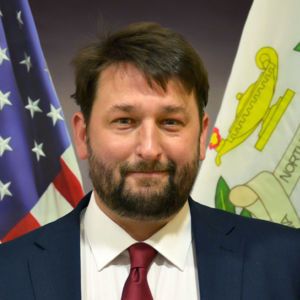
Dr. John Hemmings' areas of focus at DKI APCSS are Northeast Asian security, Japanese defence policy, the Indo-Pacific concept, alliance theory, and US alliances. He takes a special interest in 5G and national security. He was the founding Director of the Asia Studies Centre and Deputy Research Director at the Henry Jackson Society, a trans-Atlantic think tank in London. While he was at the Henry Jackson Society, Dr. Hemmings co-authored a study on Huawei, 5G and the Five Eyes, multiple studies on the Indo-Pacific, and coordinate a project on diplomacy on the Korean peninsula.
Email: hemmingsj@apcss.org
Dr. John Hemming's Bio
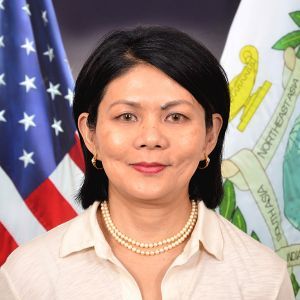
Dr. Virginia Bacay Watson's areas of interest and publication include science, technology and security in the Asia-Pacific region, water security, and Southeast Asia geopolitics. She has held appointments at the University of Denver and Colorado School of Mines and served as an exchange faculty for the University of Colorado in Beijing, China, as well as a consultant on issues pertaining to her professional areas of interest. She is the editor of DKI APCSS’ first e-book, The Interface of Science, Technology, and Security (2012). Dr. Watson holds a master’s degree in Asian Studies from Cornell University and a doctorate in International Studies from the University of Denver’s Josef Korbel School of International Studies.
Email: watsonv@apcss.org
Dr. Virginia Watson's Bio
Resources:
- Critical technologies and the Indo-Pacific: A new India-Australia partnership
- Malcolm Davis, “Australia as a rising middle power,” (Singapore: RSIS Working Papers No 328, April 2020)
- The Great Game 2.0 in Asia: Stakes go up
- The State of Southeast Asia: 2021 Survey Report
- Jeffrey Ordaniel, Advancing a rules-based maritime order in the Indo-Pacific (Pacific Forum, Issues and Insights, July 2021 V21 SR2).
- Asia Maritime Transparency Initiative
- Interim National Security Strategic Guidance
- Summary of the 2018 National Defense Strategy
- Victor Cha, Powerplay: The origins of the American alliance system in Asia (New Jersey: Princeton University Press, 2016).
- Elizabeth Economy, The Third Revolution: Xi Jinping and the new Chinese state (University of Oxford: Oxford University Press, 2020).
- Lawrence Freedman, The Future of War: A history (UK: Penguin Random House, 2017).
- John Hemmings and Peter Varnish, "Evolving the Five Eyes: Opportunities and Challenges in the New Strategic Landscape" (MacDonald Laurier Institute, September 2021).
- "China's Interests in Afghanistan" (Council of Geostrategy, August 2021).
- "US Command and Control Across the Spectrum of Gray-Zone Operations" (National Bureau of Asian Research, Special Report, May 2021).
- Matthew Kroenig, The Return of Great Power Rivalry (University of Oxford: Oxford University Press, 2020).
- Mira Rapp-Hooper, Shields of the Republic: The triumph and peril of America’s alliances (Cambridge, MA: Harvard University Press, 2020).
- Anne-Marie Slaughter, The Chessboard and the Web (Yale University Press, 2017).
- Virginia Watson, “Modernizing Alliances,” in Advancing a rules-based maritime order in the Indo-Pacific (Pacific Forum Issues and Insights, July 2021 V21 SR2) 34-37.
- Virginia Watson, “The Fourth Industrial Revolution and its Discontents: Governance, Big Tech, and the Digitization of Geopolitics,” in Alexander Vuving, ed., Hindsight, Insight, Foresight: Thinking about security in the Indo-Pacific (Honolulu: DKI APCSS September 2020): 38-48.
About This Author

Other posts by this author
-
Read more
Overview:
As the primary elements of national power and influence, Defense, Development, and Diplomacy (3D) provide the foundation for promoting national security interests abroad. In the United States, 3D efforts are led respectively by the Department of Defense, the U.S. Agency for International Development and the Department of State. While these organizations share the National Security Strategy as their highest-level strategic guidance, they have distinct perspectives on the trends, challenges and opportunities facing the Indo-Pacific region. Their responses to these conditions also vary, based on their distinct missions, authorities and organizational cultures. Understanding and aligning these elements into a holistic vision is a prerequisite to advancing the U.S. strategic approach to the Indo-Pacific region.
Objectives:
- Understand the 3D roles of defense, diplomacy and development to advancing U.S. strategic objectives in the Indo-Pacific region.
- Evaluate trends, opportunities, & challenges in advancing U.S. objectives through the lenses of defense, development and diplomacy.
Speaker's Bios:
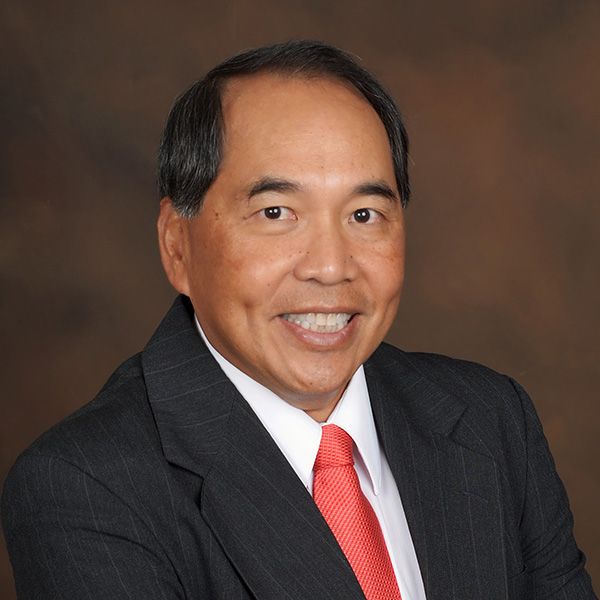
Pete Gumataotao became the Director, Daniel K. Inouye Asia-Pacific Center for Security Studies (DKI APCSS) in February 2018. A native of Guam, RADM (Ret) Gumataotao joined the Navy in 1976 and attended the Naval Academy Preparatory School in Newport, Rhode Island. He is a 1981 graduate of the United States Naval Academy and earned his Master of Arts in Strategic Studies from the U.S. Naval War College in 1994. His U.S. Naval decorations include the Defense Distinguished Service Medal, Defense Superior Service Medal, Legion of Merit (five awards), Meritorious Service Medal (four awards), and other personal, unit, and campaign awards.
Email: gumataotaop@apcss.org
Director Gumataotao's Bio
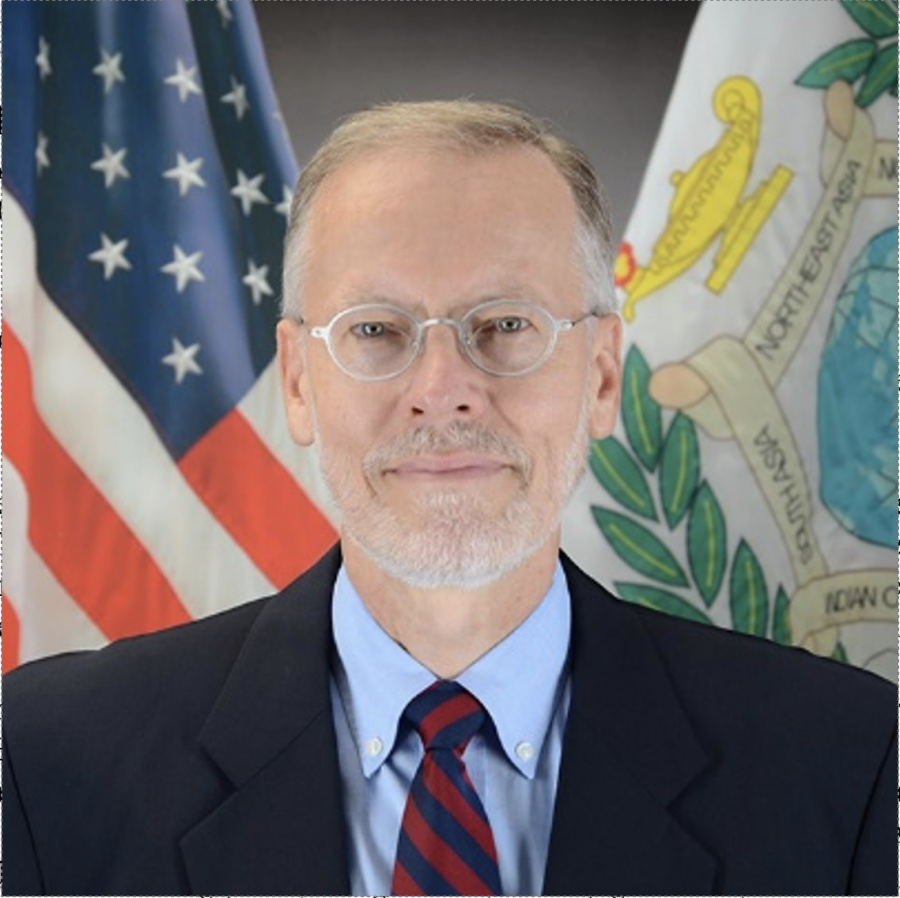
Dr. W. Brent Christensen joined the Asia-Pacific Center for Security Studies (APCSS) in September 2021. This is the second time he has served in this role at APCSS, where he served previously 2015-17. Dr. Christensen has been in the U.S. Foreign Service for over 30 years and most recently served as the Director of the American Institute in Taiwan 2018-21. He was Deputy Director of the American Institute in Taiwan 2012-15. Prior to that, he was Director of the State Department’s Office of Taiwan Coordination. He has served three assignments at the U.S. Embassy in Beijing, the most recent being Environment, Science, Technology, and Health Counselor. Dr. Christensen is a career member of the Senior Foreign Service and holds the personal rank of Minister-Counselor. He earned an M.A. in East Asian Studies from George Washington University, a B.A. in Chinese language and literature from Brigham Young University, and a DMD degree from the Oregon Health and Sciences University. He has received a number of State Department awards, including the 2020 Charles E. Cobb Award for Initiative and Success in Trade Development.
Email: christensenw@apcss.org
Dr. W. Brent Christensen's bio

Lori Forman joined the Daniel K. Inouye Asia-Pacific Center for Security Studies (DKI APCSS) in 2011, bringing a unique international background in corporate, government, academic and non-profit sectors. An expert on international economic development and foreign aid, civil society and public-private partnerships, Dr. Forman earned a Ph.D. from the Faculty of Law, Keio University, and a Master in Public Policy from Harvard University. Prior to joining APCSS Lori held senior corporate positions with Microsoft and Dubai Holding. In government she held senior positions including the U.S. Alternate Executive Director on the Board of Directors of the Asian Development Bank and Assistant Administrator for Asia and Near East of the US Agency for International Development. Dr. Forman also served in the NGO sector for 11 years, as the Director of the Japan Program of The Nature Conservancy, one of the world’s largest environmental organizations. Dr. Forman began her post-graduate career in Washington D.C., serving as the Senior Political Analyst for the White House pollster.
Email: formanl@apcss.org
Dr. Lori Forman's Bio
Resources:
US Official Documents
- Interim U.S. National Security Strategy
- U.S. National Defense Strategy (2018)
- Asia Reassurance Initiative Act 2018
US Views on What Should be in the Next NDS
- From The Atlantic Council
- From the Center for New American Security
- From Brookings Institution
- From War on the Rocks
Non-US views on What Should be Part of the Next US Indo-Pacific Strategy
- Sasakawa Peace Foundation -- Biden’s Indo-Pacific Strategy: Expectations and Challenges
- The Diplomat – Beyond Alliance Repair: Biden Must Do More in the Indo-Pacific
- The United States Studies Centre – Correcting the Course: How the Biden Administration Should Compete for Influence in the Indo-Pacific
- ISEAS – The Quad and the Indo-Pacific: Going Slow to Go Further
- Lowy Institute – Biden’s Doughnut-Shaped Indo-Pacific Strategy
- German Marshall Fund – U.S.-Europe-India Cooperation in the Indo-Pacific
3D Approaches Outside the US
-
Read more
Overview:
This panel looks at three members of the Quad and examines their approaches toward the Indo-Pacific, both as a framework for understanding the region and as a strategy for managing the risks inherent in China's rise. Japan's role in constructing and developing the Indo-Pacific concept is examined by Dr Hemmings, and its implications for its wider grand strategy. Dr. Al Oehlers looks at how Australia further developed the concept in its strategy for the region, propelling it into the mainstream. Finally, Dr Sitaraman examines India's role in shaping the concept and its privileged position inherent in the new framing. How does India's rise impact regional dynamics? Lastly, the Panel will examine the impact of the emerging AUKUS defense collaboration. Is the AUKUS just a nuclear submarine deal or is it something more?
Objectives:
- Examine Australia, India and & Japan’s strategic approaches to the Indo-Pacific and their practices of diplomacy, development, and defense to advance their security objectives.
- Examine trends, opportunities, & challenges in advancing partners’ strategic approaches to the Indo-Pacific.
Speakers' Bio:
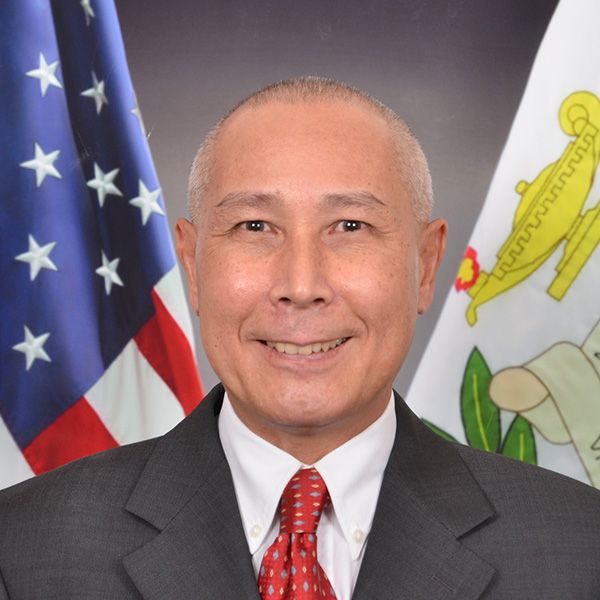
Dr. Alfred Oehlers is a specialist in the political economy of economic growth and development, with reference to the countries of the Asia-Pacific region. His teaching has ranged widely during his career, spanning courses as diverse as international business, economics, politics, public policy, international relations, Asian studies, history, and other social sciences. He has taught at Massey University in New Zealand, Macquarie University, the University of Sydney in Australia, and the Institute of Development Studies at the University of Helsinki, Finland.
Email: oehlersa@apcss.org
Dr. Al Oehlers' Bio
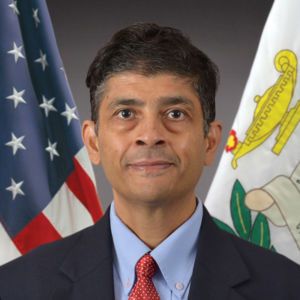
Dr. Srini Sitaraman's focus is on the Indo-Pacific Security with a particular focus on South Asia, Regional Conflict, and India-China Relations. He is also interested in New Technologies & International Security, Internet and Digital Diplomacy, Nonproliferation, and the United Nations and International Law.
Email: sitaramans@apcss.org
Dr. Srini Sitaraman's Bio
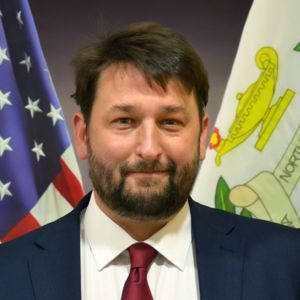
Dr. John Hemmings' areas of focus at DKI APCSS are Northeast Asian security, Japanese defence policy, the Indo-Pacific concept, alliance theory, and US alliances. He takes a special interest in 5G and national security. He was the founding Director of the Asia Studies Centre and Deputy Research Director at the Henry Jackson Society, a trans-Atlantic think tank in London. While he was at the Henry Jackson Society, Dr. Hemmings co-authored a study on Huawei, 5G and the Five Eyes, multiple studies on the Indo-Pacific, and coordinate a project on diplomacy on the Korean peninsula.
Email: hemmingsj@apcss.org
Dr. John Hemmings' Bio
Resources:
- Oriana Skylar Mastro and Zack Cooper, “In defence of AUKUS,” Lowy Institute, The Interperter, 5th October 2021
- C. Raja Mohan, “AUKUS, the Quad, and India’s Strategic Pivot,” Foreign Policy, 23rd September 2021
- AUKUS and the Quad: Shifting Power Play in the Indo-Pacific, Observer Research Foundation (ORF), 30th September 2021
- Prime Minister Scott Morrison, “A World Order that Favours Freedom”, address to the Perth USASIA Center, 9 June 2021
- Jane Hardy, "Australia's Role in the Indo-Pacific," Indo-Pacific Defense Forum, November 11, 2019
- Department of Foreign Affairs and Trade, Australia, "2017 Foreign Policy White Paper," Canberra: DFAT, 2017, (see "Overview" pp.1-8)
- Hiroyuki Suzuki, “Japan’s Role in a Multipolar Indo-Pacific", CSIS Commentary, 23 October, 2020
- Department of Defence, Australia, "2020 Defence Strategic Update", Canberra: MoD, 2020, (see "Executive Summary" pp.5-7, and "Chapter 1: Australia's changing strategic environment" pp.11-17)
-
Read more
Overview:
China and Russia are competitors to the United States and its allies and partners. The two socialist autocracies challenge the rules-based international order in the Indo-Pacific and increasingly cooperate in doing so. China has emerged as a peer competitor to the United States and seeks to establish a tributary regional order with itself at the center of states that acquiesce to its will. Russia remains a formidable military power that is flush with resources and with increasing access to the Arctic region. This panel we will look at the major features of the strategic approach to the Indo-Pacific region by these two competitors, and will illuminate Chinese and Russian strategy and foreign policy. The presenters will explain China’s multifaceted approach to the Asia-Pacific and describe Russia’s nuanced place in the region. This panel will also uncover the structural differences between the United States and its two major competitors in region as they forge a strategic partnership together that will present even more complex challenges. Finally, the panel will offer ways in which the United States, along with its allies and partners, can proactively address strategic competition in the region.
Objectives:
- Describe China’s approach to the Indo-Pacific region and how it relates to China’s broader national strategy.
- Describe Russia’s place in the Indo-Pacific region and the challenge it presents.
- Explain the emerging strategic partnership between China and Russia.
- Provide possible proactive approaches the United States, along with its allies and partners, can take to engage these two competitors.
Speaker's Bios:
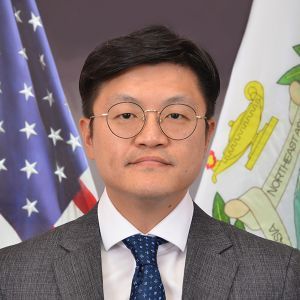
Dr. Cho's area of research interests covers China-Korean Peninsula relations, North Korea’s nuclear program, Korean unification, and the US alliance in East Asia. Dr. Cho also closely follows the domestic politics of China, Taiwan, and North Korea. Prior to arriving at DKI APCSS, Dr. Cho was a lecturer for the Asian Studies Program at Georgetown University from 2016 to 2018.
Email: chos@apcss.org
Dr. Sungmin Cho's Bio
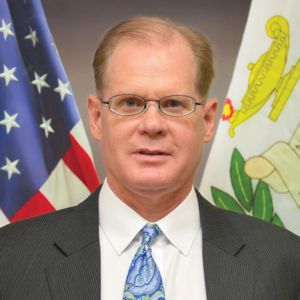
CAPT Wade Turvold (USN - Ret) served as a Naval Flight Officer during his 30-year career and has extensive experience flying P-3C and P-8A aircraft. He previously served as the U.S. Navy Senior Service Representative and Director National Security Studies at the U.S. Army War College, and the U.S. Navy Exchange Directing Staff at the Joint Services Command and Staff College, Defence Academy of the United Kingdom in Shrivenham, England.
Email: turvoldw@apcss.org
Prof. Wade Turvold's Bio
Resources:
- Jakob Stokes, “China’s Periphery Diplomacy: Implications for Peace and Security in Asia,” United States Institute of Peace 467, May 2020
- “Has COVID-19 Changed How China’s Leaders Approach National Security?” ChinaFile, June 3, 2020
- Sungmin Cho, “The New US Diplomacy with China: ‘Keep Your Promises” PacNet #10, posted by Pacific Forum. (February 19, 2021).
- Hal Brands and Michael Beckley, “China Is a Declining Power—and That’s the Problem,” Foreign Policy, posted on September 24, 2021.
- Wade Turvold, “Russia in the Pacific: Strategic Opportunity in the Far East,” in Alexander L. Vuving (ed.), Hindsight, Insight, Foresight: Thinking about Security in the Indo-Pacific (Honolulu: Daniel K. Inouye Asia-Pacific Center for Security Studies, 2020), pages 228-240
- Wade Turvold, Michael B. Dorschner, and Michael Burgoyne, “Russia and Northeast Asia: Unrealized Potential,” in Graeme P. Herd, ed., Russia’s Global Reach: A Security and Statecraft Assessment (Garmisch-Partenkirchen: George C. Marshall European Center for Security Studies, 2021), pages 53-61
- Wade Turvold, Michael B. Dorschner, and Michael Burgoyne, “Russia-China: Putin Turns to the East,” in Graeme P. Herd, ed., Russia’s Global Reach: A Security and Statecraft Assessment (Garmisch-Partenkirchen: George C. Marshall European Center for Security Studies, 2021), pages 44-52
- Bobo Lo, “Once More with Feeling: Russia and the Asia-Pacific,” Lowy Institute for International Policy, August 2019
